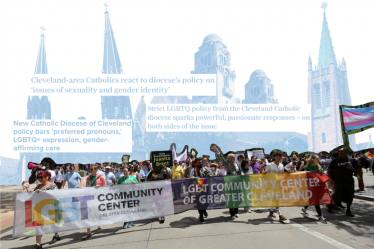Association of American Colleges and Universities recognizes president’s innovative approach
Mariah Joyce
Chief Copy Editor
President Grant Cornwell was recently elected to the board of directors of the Association of American Colleges and Universities (AAC&U). Founded in 1915 as a group of 179 small liberal arts colleges, AAC&U now boasts a membership of over 1,300 institutions, ranging from community colleges to public and private colleges to universities of every type and size.
Cornwell was enthusiastic about the appointment, saying “Serving on the board of directors of AAC&U will enable me to apply my passion for liberal education to issues of national policy and public understanding.”
AAC&U defines itself as “The leading national association concerned with the quality, vitality and public standing of undergraduate liberal education.” The organization is concerned with advocating for the necessity of a liberal arts education in the 21st century, in the face of an increasingly globalized world. In addition, AAC&U assesses the current value of a U.S. undergraduate degree and emphasizes the importance of social responsibility and equality in education.
Cornwell shares strongly in the AAC&U’s belief in the liberal arts education.
“I seek every opportunity presented to me to champion liberal education, especially as it is offered on liberal arts college campuses like Wooster. The popular media seems set on calling the value of liberal education into question in spite of ample evidence of its transformative impact. The kind and quality of education Wooster offers is exactly that best suited to needs of our democratic society and to the needs of our global economy.”
When elected, Cornwell commented that “AAC&U is a powerful voice not only for the enduring value of liberal education, but for its dynamism and innovation as well.”
Cornwell added that while the goals of a liberal education are enduring, “how we pursue those goals changes with the ways knowledge is created and communicated. The dynamics of globalization and technology are changing both the context of our mission —the world we are preparing our students to lead — and the modes of teaching, research and communication.”
Relating those constantly changing dynamics to Wooster, Cornwell commented that for Wooster to remain both relevant and loyal to its mission of a liberal education, continuous innovation and creativity are required. As evidence of this innovation’s implementation, Cornwell cited the recent creation of the Center for Diversity and Global Engagement, CoRE (Collaborative Research Environment) and APEX (Advising, Planning, Experiential Learning).
Serving on AAC&U’s board is not the only way Cornwell hopes to champion the liberal education moving forward. Cornwell added that in a related effort, he has also been asked by the Council of Foreign Relations to serve on their Global Literacy Advisory Board. According to Cornwell, “This is a project to articulate an account of what students need to know and be able to do to engage productively with global civil society in this era,” much like the mission of the AAC&U.

